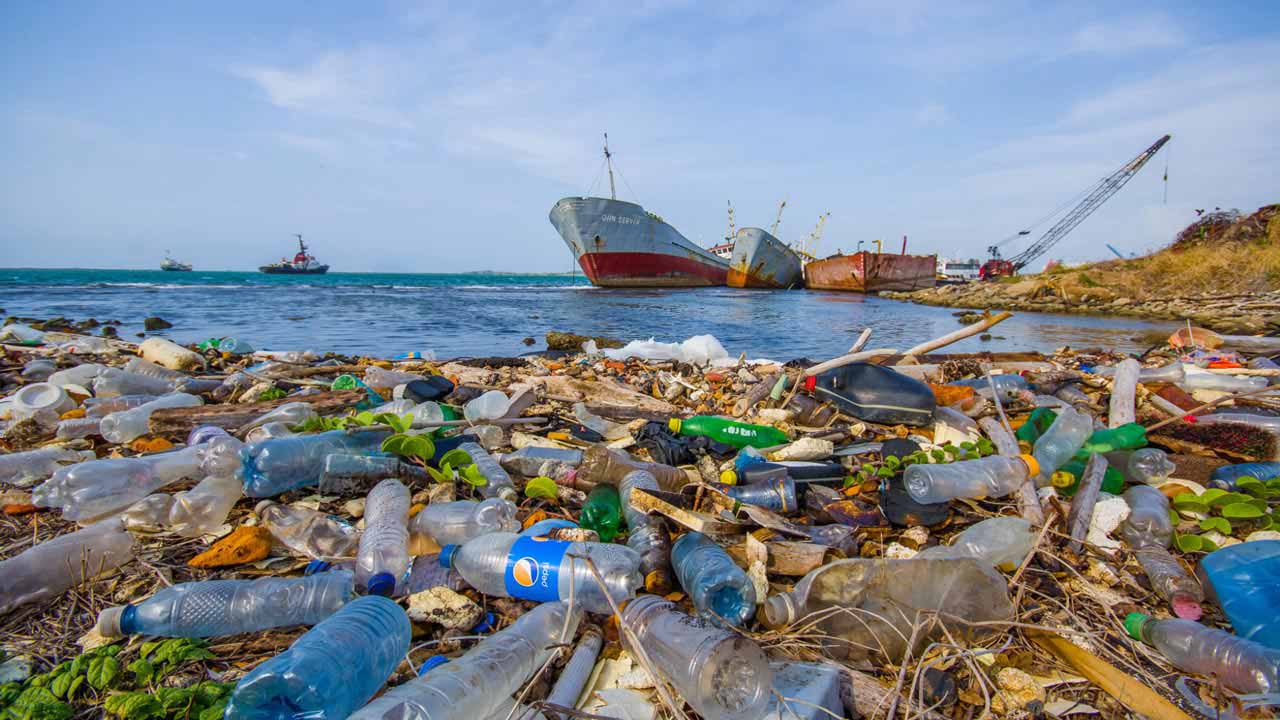
• Mulls new bill to ban plastics
The Federal Government has launched an action plan to tackle the challenge of marine litter and plastics, to ensure cleaner seas and ocean for healthy living and protection of maritime ecosystem.
This is even as the National Assembly and the Federal Ministry of Environment are putting finishing touches to a bill aimed at prohibiting the production of plastics, which pollutes the environment.
Director-General, NIMASA, Dr Dakuku Peterside, while speaking at the launch of the Maritime Action Plan on Marine Litter and Plastic Management in Nigeria, said the nation is among the top countries in Africa contributing plastic waste to the oceans.
He noted that, “communities along the coast are paying a huge price for ocean pollution; therefore it becomes imperative that we tackle this immediately. This Marine Litter Action Plan is therefore our own contribution to build the necessary collaboration in tackling this issue that poses a great threat to all of us.”
Peterside expressed optimism that the action plan would trigger the needed behavioural change in the country, improve development, and enable the enforcement of new initiatives to tackle marine litter and plastics.
He said the issue of marine litter and plastics in the seas and oceans has remained a global concern, following increased awareness about blue economy and its derivable benefits.
“The challenges of Marine Litter and Plastic pollution are multiple, and include threat to food security, threat to economic activities, navigational hazard, water safety, threat to ecosystem, harmful effects on marine life and bio-diversity among others. It is known fact that our oceans and seas sustain lives but when the threats to ocean health are numerous, it also affects human beings,” he said.
A member of the Senate Committee on Marine Transport, Senator Tolulope Odebiyi, (the proponent of the proposed bill), who represented the chairman of the committee, Senator Danjuma Goje, said the bill would be harmonised with input from the Federal Ministry of Environment, to make a holistic law that would impose tough sanctions on the production of organic polymers.
Odebiyi said the National Assembly was solidly behind NIMASA in the presentation and implementation of the action plan, which envisions the elimination of land-based sources of marine litter within five years.
Chairman, House of Representatives Committee on Environment, Johnson Oghuma, also expressed the lower chamber’s commitment to a cleaner environment. Oghuma said the House was always prepared to assist the executive in the implementation of government policies.
The Minister of State for Environment, Mrs. Sharon Ikeazor, sued for synergy among relevant government agencies and the private sector in the fight against environmental pollution.
Ikeazor said the Ministry will establish more recycling plants for the collection of plastics and other litter that would be cleared from the oceans.
“You have started right with sensitisation of our people on what to do with plastics. The Ministry of Environment will definitely support NIMASA. We will take this further and put it together to be a national action plan,” she stated.
A report by the World Economic Forum, projects that by the year 2050, plastics in the oceans will outweigh fish if not checked. Of 260 million tonnes of plastic produced in the world yearly, about 10 per cent ends up in the ocean, and 70 per cent of the mass eventually sinks, damaging life on the seabed.
Quoting from another recent report, Peterside said the incidences are not only evident globally or continentally, but also in Nigeria, which is among the top 20 nations that contribute 83 per cent of total volume of land based plastic waste that end up in the oceans/seas. It is estimated that over 200,000 metric tonnes of plastic waste from land-based sources in Nigeria, is discharged into the Atlantic Ocean each year.
He bemoaned a situation whereby an immeasurable number of coastal communities in Nigeria have no official waste collection service, meaning that there is nowhere for litter to go. Regrettably, he noted that most of the waste generated in these communities ends up in the seas and oceans.
He said the purpose of the Marine Litter Action Plan includes; setting a national roadmap to tackle issues especially the ones arising from shipping-related activities; to identify specific actions that need to be taken by different parties to reduce and eliminate marine litter and plastics from our seas and oceans; to strengthen corporation and collaborations in tackling such pollution.
Others are; to establish template that monitors progress in our fight against marine litter and plastics in the seas and oceans; to build, operationalise and compliment IMO Action Plan on marine litter from ships. Also on the list is to enhance the enforcement of existing laws, conventions and regulations; to increase the awareness and understanding of the dangers of marine litter and the need for joint effort to tackle it.






